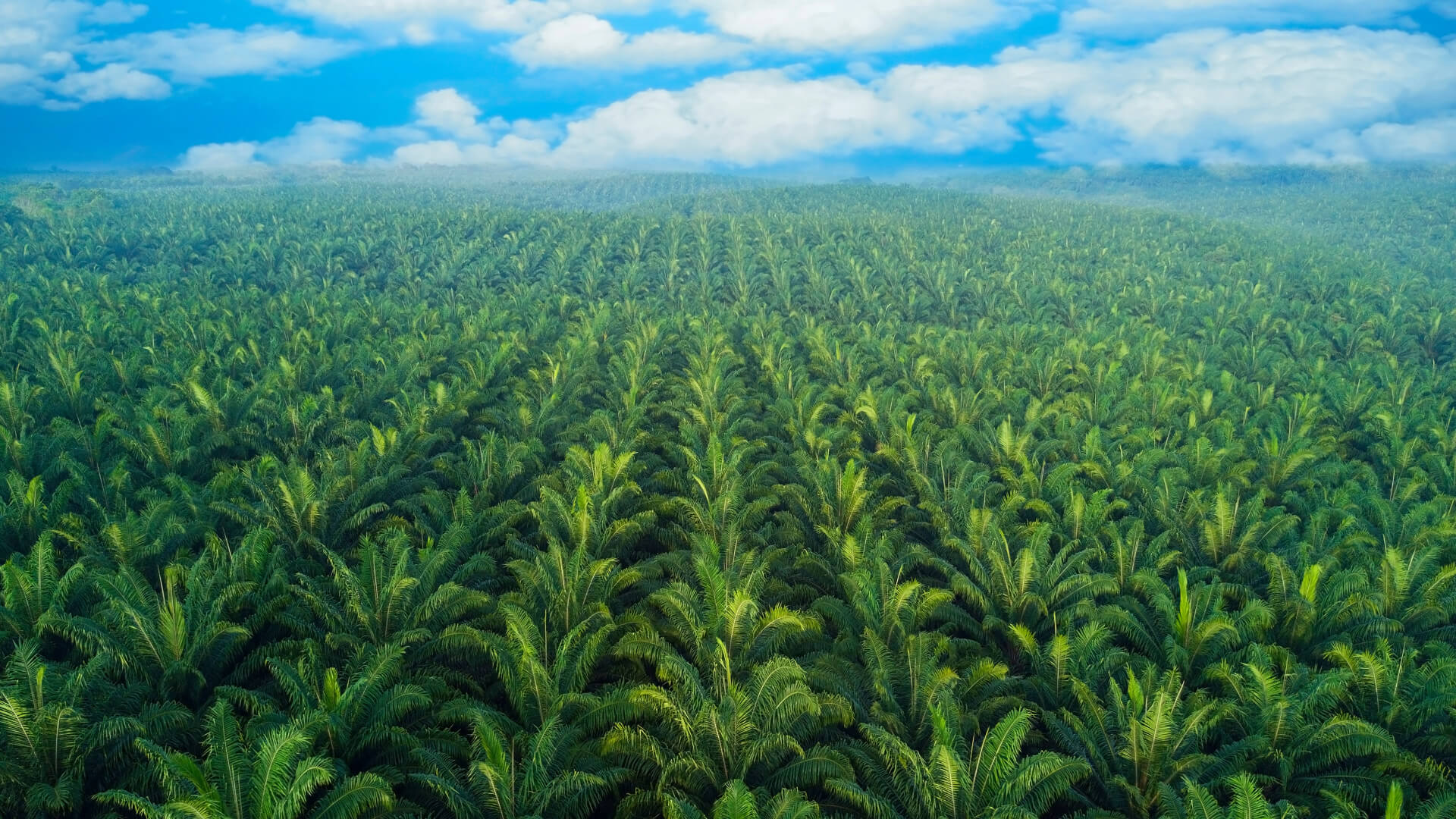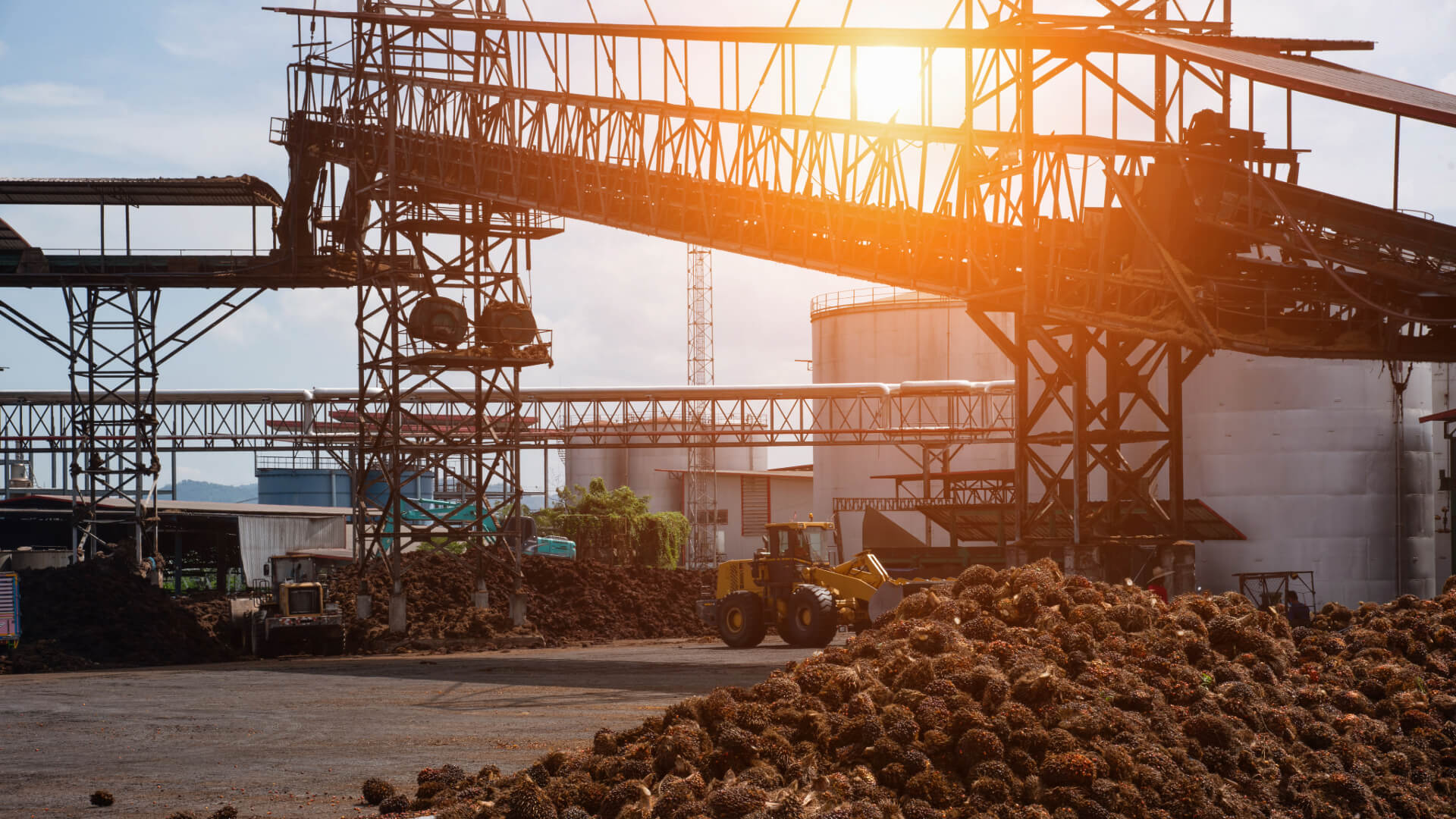The Future of Palm Oil: From Small Farms to National Compliance
Posted by Stelios on 6th Jan 2025 Reading Time:
Palm oil is a key ingredient in our everyday lives – a popular frying medium for fish and chips to the pastry in pies, cleaning products, animal feed, and even biofuel-powering cars and lorries. Yet, its production comes at a cost, often associated with deforestation, biodiversity loss, and climate change. Now, a bold concept is emerging: instead of certifying individual producers, could entire states or even nations commit to sustainable practices? This innovative approach, known as the jurisdictional approach, could transform the palm oil industry, but not without overcoming significant challenges.

The History of Palm Oil and Its Ubiquity
Palm oil’s journey began in West Africa, where it was once a primary export commodity. However, over the past century, the global epicentre of palm oil production shifted to Southeast Asia, particularly Malaysia, Indonesia, and Thailand. Its appeal lies in its versatility: it’s used for frying in fish and chip shops and acts as a moisturiser, providing a soft, tender texture in baked goods and products as varied as detergents, soaps and biofuels.
Despite its widespread use, palm oil has faced heavy criticism. Large-scale deforestation to clear land for plantations has led to habitat destruction and a loss of biodiversity. These environmental concerns have made sustainable palm oil a pressing global issue.
Global Edible Oil Consumption (2023/24)
| Edible Oil | Estimated Annual Consumption (million metric tons) |
| Palm Oil | 79.4 |
| Soybean Oil | 61.66 |
| Rapeseed Oil | 29.17 |
| Sunflower Seed Oil | 20.27 |
| Palm Kernel Oil | 9.17 |
| Peanut Oil | 7.13 |
| Cottonseed Oil | 5.26 |
| Coconut Oil | 3.48 |
| Olive Oil | 2.84 |
These figures are based on data from the 2023/24 period. (source)
What is the Jurisdictional Approach?
The Roundtable on Sustainable Palm Oil (RSPO) traditionally certified individual producers, ensuring they met sustainability standards. However, this approach had its limits. Certifying one mill or company at a time could only cover a fraction of the global supply chain. The jurisdictional approach scales up this concept by certifying entire regions, such as states or countries, embedding sustainability into policies, land management, and agricultural practices.
In this model, all stakeholders within the jurisdiction—governments, businesses, and communities—work together under a governing body to meet RSPO standards. This collaborative effort aims to ensure that sustainability becomes the default practice across the region.
Edo State, Nigeria: A Case Study in Progress
Edo State in Nigeria is among the most compelling examples of the jurisdictional approach in action. Historically, as a leading palm oil producer, the region suffered significant deforestation, leaving large areas of degraded land. Recognising this, the state government set out to restore the balance between economic growth and environmental protection.
When auditing the land, officials found that many forest areas no longer met the definition. Some of these areas were repurposed for agriculture, with oil palm identified as the ideal crop. To ensure sustainability, areas of high carbon value and biodiversity were protected, while others were reforested.
This bold move aims to meet global sustainability standards and provides a model for other palm oil-producing regions. Edo demonstrates that sustainability can coexist with economic development by certifying the entire state.
Ecuador’s National Effort: A Blueprint for the Future
On a national scale, Ecuador is piloting the jurisdictional approach, integrating sustainable practices into its policies. By working with local and national governments, international companies, and non-governmental organisations, Ecuador is building incentives for sustainable agriculture.
The involvement of multiple stakeholders ensures that these efforts are not just short-term fixes but long-lasting solutions. According to Ruth Salvador from Conservation International, embedding sustainability into policy creates stability, benefiting both producers and the environment. This national-level effort could be a blueprint for other countries seeking to balance economic growth with environmental responsibility.
Why Does This Matter?
Palm oil plays an integral role across industries, from food to energy. In the fish and chip sector, it’s a popular frying medium due to its high heat tolerance and neutral flavour. It’s also critical in biofuel production, offering a renewable energy source. Ensuring these industries access sustainable palm oil is essential for environmental protection and maintaining consumer trust and business resilience.
For example, imagine a future where every fish and chip shop uses certified sustainable palm oil. Such a shift could reduce deforestation while giving consumers peace of mind about their choices.

EUDR Compliance: Challenges and Innovations
The European Union Deforestation Regulation (EUDR) adds another layer of complexity to palm oil production. This regulation mandates that imported commodities, including palm oil, must be deforestation-free. While the jurisdictional approach simplifies compliance for certified regions, challenges remain, particularly in areas with fragmented supply chains.
In Papua New Guinea, for instance, over 80% of the land is forested, and smallholders play a significant role in palm oil production. Meeting EUDR standards here is challenging because the definition of “forest” under the regulation is stricter than that of the RSPO. Similarly, in Thailand, where 85% of palm oil is grown by smallholders, traceability issues arise due to the complex supply chain involving independent harvesters and intermediaries.
Technological tools and better land management systems could help smallholders adapt, ensuring that palm oil meets international standards while protecting their livelihoods.
Top Palm Oil-Producing Countries: Annual Production and Global Output Share (2023)
| Country | Annual Production (Million Metric Tons) | Percentage of Global Output |
| Indonesia | 45.0 | 58% |
| Malaysia | 18.8 | 24% |
| Thailand | 3.0 | 4% |
| Colombia | 1.8 | 2% |
| Nigeria | 1.5 | 2% |
| Guatemala | 0.9 | 1% |
| Ecuador | 0.7 | 1% |
| Honduras | 0.5 | 0.7% |
| Papua New Guinea | 0.5 | 0.7% |
| Brazil | 0.4 | 0.5% |
| Others | 3.9 | 5.1 |
Innovations for Smallholders: The Power of Intercropping
For smallholders, sustainability is not just a moral imperative but an economic necessity. Fluctuating global prices and climate change make their income precarious. Intercropping offers a solution. In Thailand’s Surat Thani province, smallholders grow pandan leaf alongside oil palm. This secondary crop diversifies income and protects against pests, demonstrating that sustainability can enhance resilience.
Such innovations are vital for smallholders to remain competitive while meeting the demands of global regulations like the EUDR.

Balancing Local Needs with Global Standards
The jurisdictional approach promises transformative change, but balancing local realities with international expectations is crucial. Smallholders often lack the resources to meet stringent standards, even though they are willing to adopt sustainable practices. Policymakers and organisations must support these farmers with tools, training, and financial incentives.
The fish and chip industry, bakery sector, and biofuels depend on affordable, high-quality palm oil. The success of the jurisdictional approach could ensure that sustainability does not come at the expense of these industries or the communities that rely on them.
A Bold Vision for Sustainable Palm Oil
The jurisdictional approach offers a compelling vision for the future. Certifying entire states or nations creates opportunities to embed sustainability into regional policies, benefiting producers and the planet. However, this ambitious model requires time, collaboration, and investment.
For industries and consumers alike, the benefits are clear. Whether enjoying a portion of fish and chips or fuelling a vehicle, sustainably sourced palm oil promises a brighter, greener future. As Edo State and Ecuador show, it’s possible to transform palm oil into a symbol of sustainability rather than controversy with the right approach.


